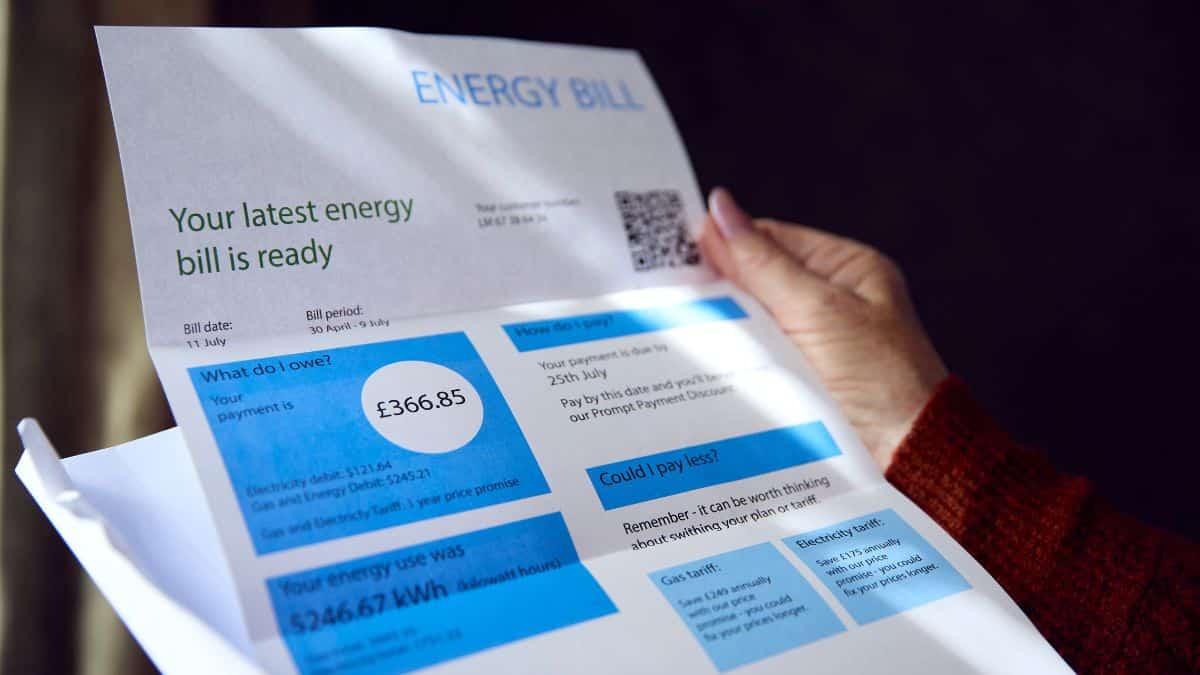Around 195,000 households could soon see their energy debts wiped out as part of a new plan from Ofgem to help those hardest hit by the energy crisis.

The UK’s energy regulator says it’s planning to “reset and reform” the growing pile of energy debt, which has reached a record £4.4 billion.
The new Debt Relief Scheme would see up to £500 million of unpaid bills written off, with the first phase due to start in early 2026.
Get a free £10 bonus with Swagbucks
Earn a bit of extra money in your spare time with surveys, videos, and simple tasks you can do at home.
New users can get a £10 bonus when they sign up.
Get the £10 bonus
Who could get help
The first people set to benefit are those on means-tested benefits who’ve built up more than £100 of energy debt between April 2022 and March 2024.
To qualify, households will need to be:
- Making some kind of contribution toward their debt or energy use, or
- Willing to work with a debt advice charity to help manage their finances.
Suppliers will automatically identify eligible customers and contact them directly when the scheme launches.
How it’s being paid for
The cost of unpaid energy debt is currently shared across everyone’s bills, adding around £52 a year to the typical household under the current price cap.
Ofgem’s plan could add around £5 extra per year to cover the cost of writing off the debt, though this might change once the final details are confirmed.
While this move will help those struggling the most, it does raise questions about fairness, especially for households that have kept up with payments but are still stretched thin.
Why the scheme is needed
Energy debt has spiralled since prices shot up during the energy crisis. In just one year, total arrears across England, Scotland, and Wales jumped by £750 million, and over one million households now have no plan in place to repay what they owe.
Ofgem says this growing problem makes it harder for suppliers to invest and innovate, while leaving millions of households with higher bills.
Charlotte Friel from Ofgem said, “We must protect consumers by striking the right balance between supporting those who can pay and targeting help at those who need it most.”
Changes for people moving home
One part of the plan targets a quirk in how energy accounts are handled when people move.
Right now, when someone moves into a new property, the energy account switches to “the occupier” Until the new resident registers, bills can build up under this anonymous account.
Ofgem says this could make up as much as £1.7 billion of the country’s unpaid energy debt. To fix it, the regulator is looking at a rule that would make new tenants or homeowners sign up with a supplier before using energy.
Where there’s a smart meter, the idea is to switch it to prepayment mode with a small credit balance so people stay on supply while setting up their account.
Should energy companies pay instead?
Some MPs and campaigners have argued that the energy industry should cover these costs instead of households.
A group of MPs recently said energy network firms have made “excess profits” while families have been forced to choose between heating and eating. They want those profits used to help clear the debt.
But Ofgem says changing the rules now would just lead to higher prices for everyone in the long run.
The bottom line
This plan is an important step, but it’s not a full fix. Writing off £500 million will only put a dent in the £4.4 billion still owed.
Still, for families drowning in energy debt, it could offer real breathing space and a chance to start fresh without the constant worry of bills piling up.
If you’re struggling to pay your energy bills, speak to your supplier or a debt advice charity as soon as possible. Help is there, and with schemes like this on the way, things could start to ease.

Skint Dad says:
It’s good to finally see something that could make a real difference for people struggling with energy debt. But it’s not simple. Wiping debts for some will mean slightly higher bills for everyone else. The important thing is that this help reaches the families who really need it and stops more debt from building up in the future.
Saved a few quid with our tips?
If Skint Dad has helped you spend less or feel more in control of your money, you can support the site with a small contribution.
- Side hustles and benefits in the UK: what you need to know - 8 January 2026
- Lloyds Bank switch deal: grab £250 plus Disney Plus for free - 6 January 2026
- Thinking of doing the Co-op freezer deal? Read this first - 6 January 2026
